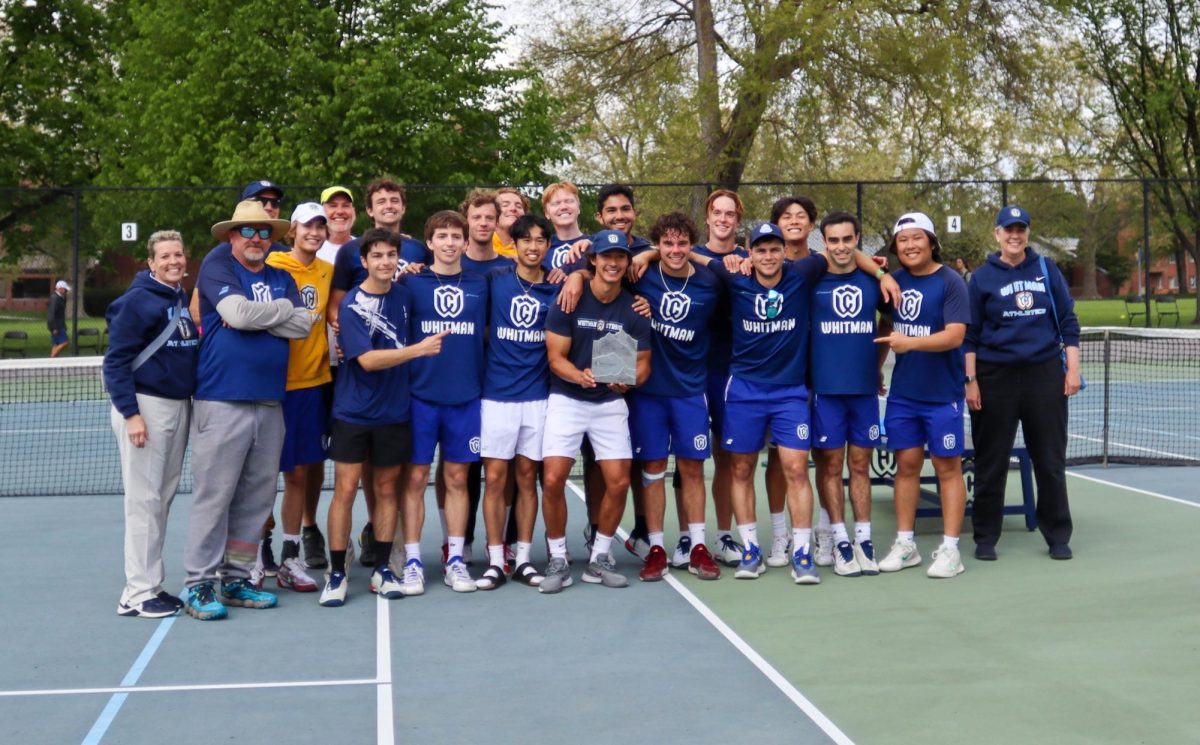
Athlete Ally is an organization that encourages athletic communities to welcome and respect all individuals involved in sports regardless of their sexual orientation or gender expression. Athlete Ally was first introduced to the Whitman College campus in the fall of 2011, and the organization’s influence continues to be felt as the year goes on.
Athlete Ally entered the athletic scene at Whitman when ASWC first took interest in it. Once the wheels were in motion, Athlete Ally then found its way into conversations at SAAC meetings. Ultimately, all of the varsity teams were educated about what the organization’s mission was, and how they could effect change on campus.
Since then, the presence of Athlete Ally has continued to grow, according to student leader senior Alice Minor. “It has sparked a lot of conversations among athletes,” said Minor. This, according to Minor, is the way it should be. “Athletes can and should be leaders. The push for gay rights shouldn’t always be coming from gay people.”
Another student leader at Whitman is senior Matt Rowett. Rowett made sure to stress that this is only the beginning of Athlete Ally’s mission.
“In general, we’ve had a good start, but there is still a ways to go. We have only started the conversation,” said Rowett, who is also the captain of the men’s swimming team. He believes that athletes sometimes get so caught up in the grind of their sports that they lose sight of the other values that team athletics teaches. “Athletes become hyper-focused at times. Team unity is something that is a backdrop, but never actually talked about,” said Rowett.
Athletic Director Dean Snider also believes that Athlete Ally is on the right track. “Every time I have heard people talking about it, it has always been in a positive framework,” said Snider.
For Athlete Ally to continue to be effective, however, Snider stresses the importance of focusing on the dialogue produced from discussions, rather than just having athletes sign a piece of paper. “We want to make sure that we focus on the conversation, [as] opposed to forcing a a signature. We should find increasingly refreshing ways to have this conversation so that it has a lasting effect,” said Snider.
Rowett and Minor agree, and have found different outlets to spread the word. To start, they are working on implementing workshops for athletes and coaches to participate in that would teach them the issues that homosexual athletes face, and the best ways to approach them.
“We think that workshops with athletes is the key way to implement the bridge between tolerance and owning the issue,” said Rowett. Minor and Rowett hope to have these workshops underway by the end of the year.
In addition to workshops on campus, the rest of the Northwest Conference is beginning to become educated as to what Athlete Ally is all about. After Rowett and Minor brought the issue to Whitman’s SAAC representatives, they then took it to the conference-wide SAAC meeting. As a result, the rest of the teams in the NWC have begun to strongly consider the possibilities of implementing Athlete Ally at their respective campuses. Whitman is at the forefront of this issue in the conference, and has asserted itself as the leader.
Lastly, and perhaps most importantly, Minor and Rowett have approached the highest in command at Whitman College about this issue: the Board of Trustees.
“Two weeks ago Matt and I gave a presentation to the Diversity Committee of the Board of Trustees. It went really well,” said Minor. Ideally, the Board of Trustees will be receptive to Athlete Ally and continue to add to the already large impact its made on campus.
Even though Athlete Ally is thriving at Whitman, there is still much work to be done. Coaches, athletes, professors and students need to continue to have conversations regarding the issues that homosexual athletes face in team environments. By having conversations, the issue stays alive, which gives Athlete Ally an even greater chance of improving the environment for a supportive athletic community.


